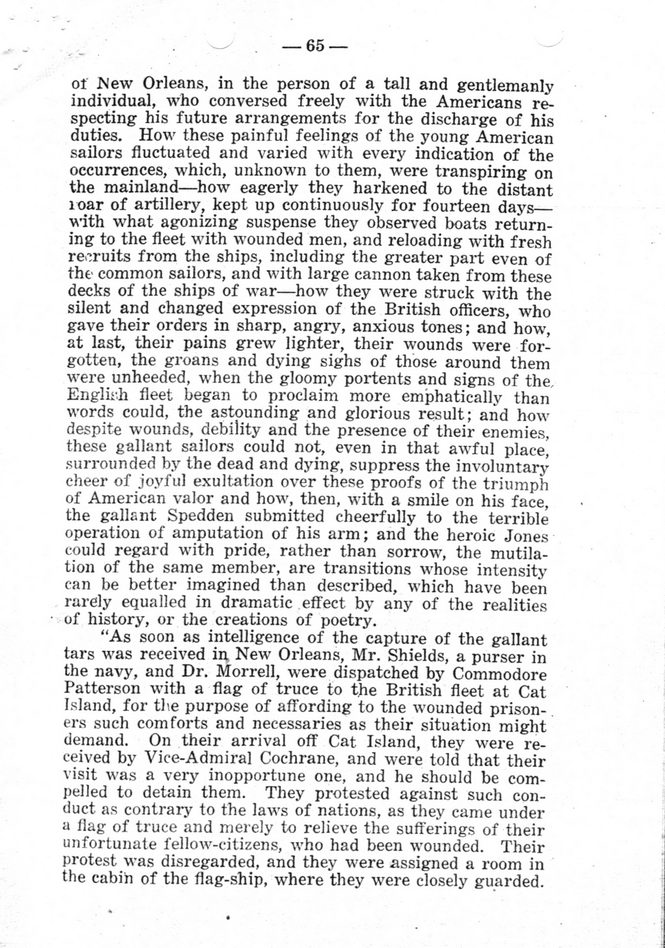This text was obtained via automated optical character recognition.
It has not been edited and may therefore contain several errors.
? 65 ? of New Orleans, in the person of a tall and gentlemanly individual, who conversed freely with the Americans respecting his future arrangements for the discharge of his duties. How these painful feelings of the young American sailors fluctuated and varied with every indication of the occurrences, which, unknown to them, were transpiring on the mainland?how eagerly they harkened to the distant roar of artillery, kept up continuously for fourteen days? with w7hat agonizing suspense they observed boats returning to the fleet with wounded men, and reloading with fresh recruits from the ships, including the greater part even of the common sailors, and with large cannon taken from these decks of the ships of war?how they were struck with the silent and changed expression of the British officers, who gave their orders in sharp, angry, anxious tones; and how, at last, their pains grew lighter, their wounds were forgotten, the groans and dying sighs of those around them were unheeded, when the gloomy portents and signs of the, English fleet began to proclaim more emphatically than words could, the astounding and glorious result; and how despite wounds, debility and the presence of their enemies, these gallant sailors could not, even in that awful place, surrounded by the dead and dying, suppress the involuntary cheer of joyful exultation over these proofs of the triumph of American valor and how, then, with a smile on his face, the gallant Spedden submitted cheerfully to the terrible operation of amputation of his arm; and the heroic Jones could regard with pride, rather than sorrow, the mutilation of the same member, are transitions whose intensity can be better imagined than described, which have been rarely equalled in dramatic effect by any of the realities of history, or the creations of poetry. ?As soon as intelligence of the capture of the gallant tars was received in New Orleans, Mr. Shields, a purser in the navy, and Dr. Morrell, were dispatched by Commodore Patterson with a flag of truce to the British fleet at Cat Island, for the purpose of affording to the wounded prisoners such comforts and necessaries as their situation might demand. On their arrival off Cat Island, they were received by Vice-Admiral Cochrane, and were told that their visit was a very inopportune one, and he should be compelled to detain them. They protested against such conduct as contrary to the laws of nations, as they came under a flag of truce and merely to relieve the sufferings of their unfortunate fellow-citizens, who had been wounded. Their protest was disregarded, and they were assigned a room in the cabin of the flag-ship, where they wrere closely guarded.

Battle of 1814 Battle-of-the-Gun-Boats-Chapter-5-P65